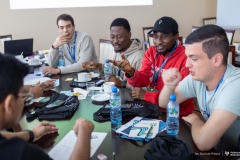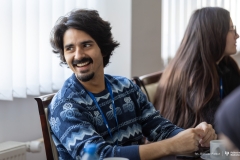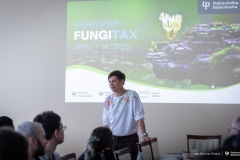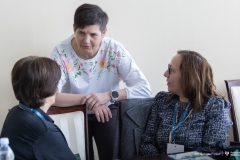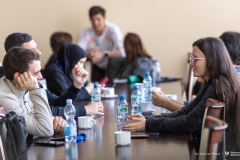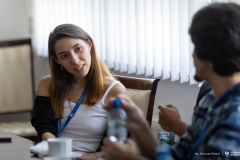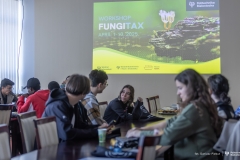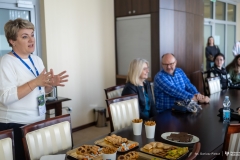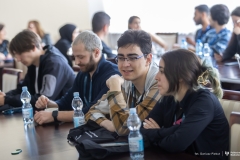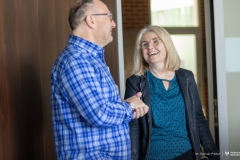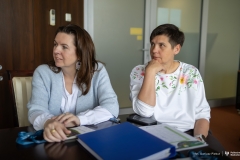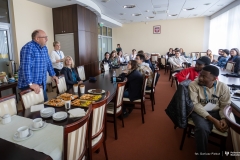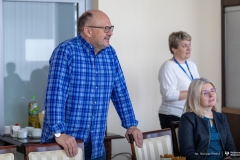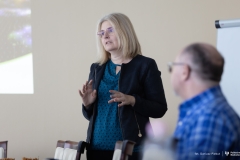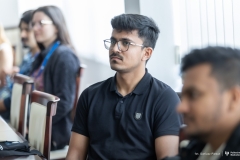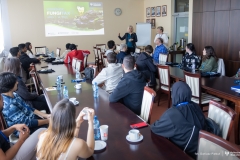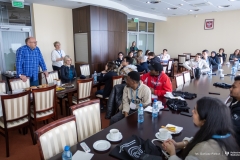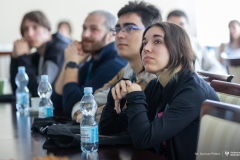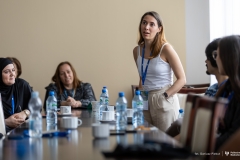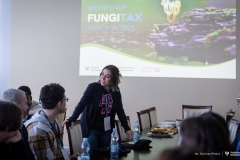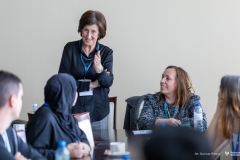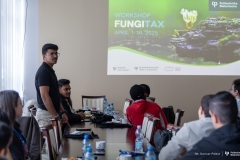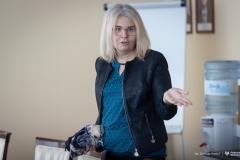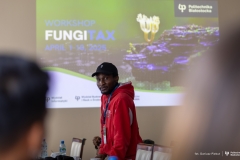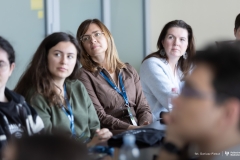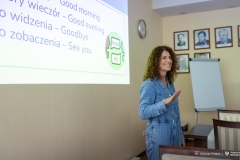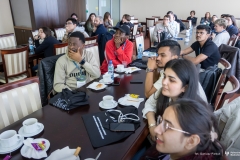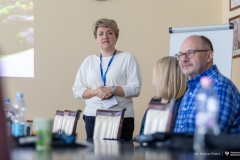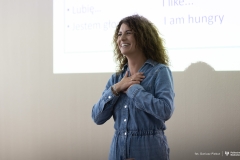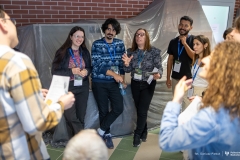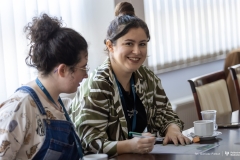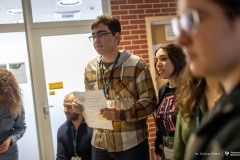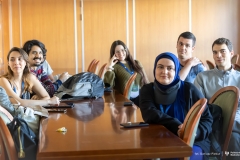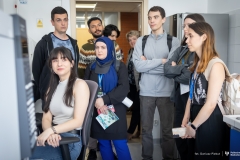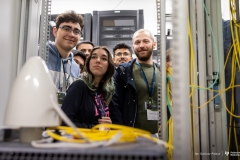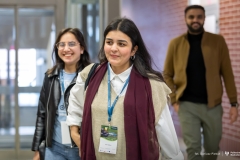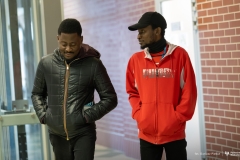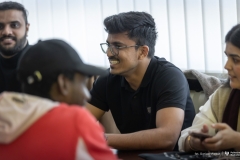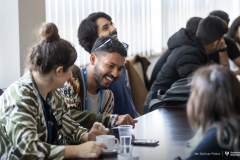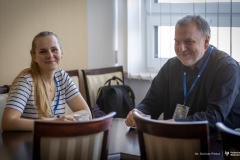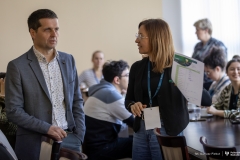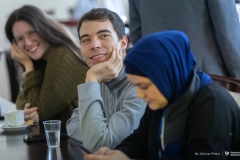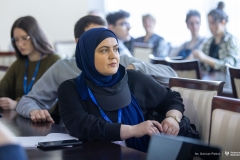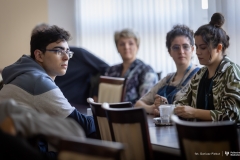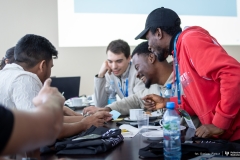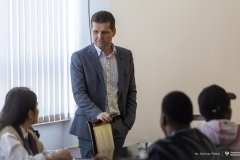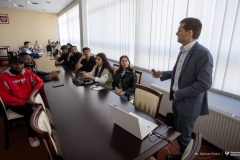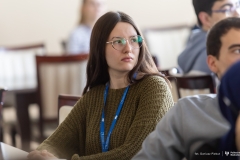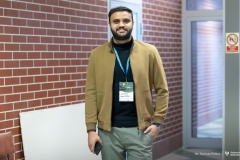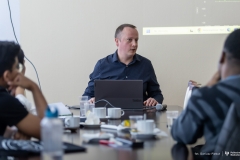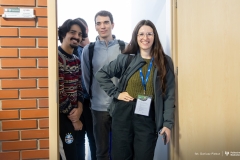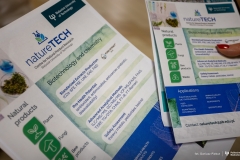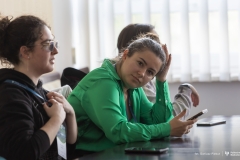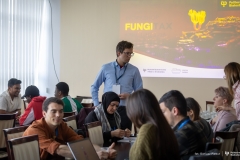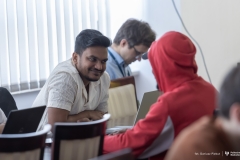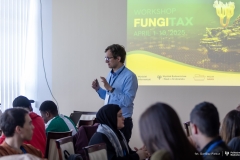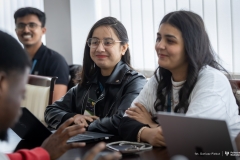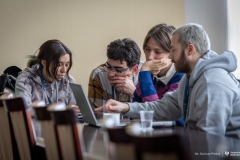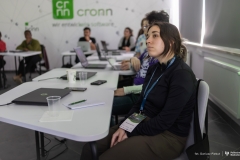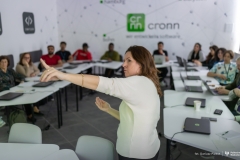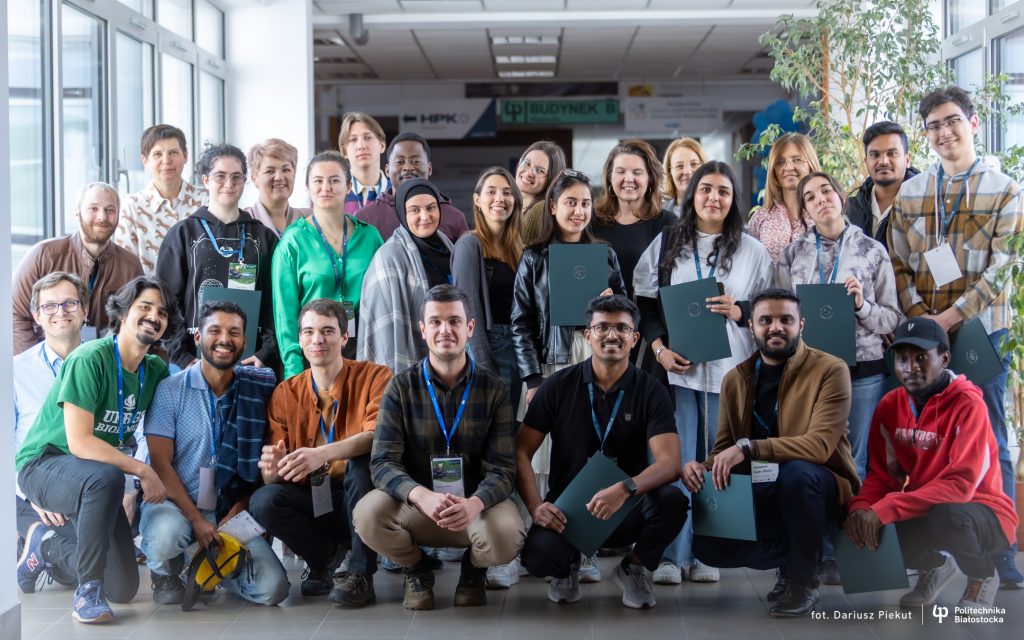
What did students and PhD candidates from seven countries in Europe and South America learn from scientists at Bialystok University of Technology? How can research on fungi from the Białowieża Forest change the face of medicine or the cosmetics industry? How can data analysis support the development of life sciences? These questions were explored during the 10-day FUNGITAX workshops with young international researchers.
– I’ve learned a lot here. I’m grateful for the warm welcome and support – said Manuela Agudelo from Colombia, a participant in the mycology workshop. – We learned how to collect fungal samples from trees and wood – I did it for the first time, directly in nature. We examined them under a microscope and learned how to preserve them for further research.
The classes were conducted by scientists from Bialystok University of Technology, who shared their knowledge and inspired young biologists, IT specialists, mycologists and foresters from around the world. The event was part of the university’s internationalisation strategy and the “PROM – short-term academic exchange” programme.
– Young people will be introduced to our laboratory facilities and our teaching methods – said Assoc. Prof. Dorota Anna Krawczyk, DSc, PhD, Eng, Vice-Rector for International Cooperation at Bialystok University of Technology, at the opening of the event. – Academic staff will be able to meet and exchange experiences. Building partnerships in education and research is invaluable for future collaboration. The benefits are mutual.
The international workshops were held in two thematic blocks: Nature to data and Data to nature.
– The workshops on mycology were attended by international students and doctoral candidates with advanced knowledge in the life sciences, which they develop through research at their home universities – said Ewa Zapora, PhD, from the Institute of Forest Sciences at the Faculty of Civil Engineering and Environmental Sciences. – This is an elite group of researchers, who can nevertheless gain a great deal from us in the field of mycology by expanding their knowledge through our research..
Bialystok University of Technology is home to the unique Fungi Extract Bank® – a collection of fungi from the Białowieża Forest studied by scientists from the Institute of Forest Sciences. As it turns out, fungi are not just a culinary ingredient. They have significant potential applications in medicine and even cosmetics production.
Plant-based ingredients are also studied at natureTECH – Centre for Research on Natural Products, which develops and implements innovative technologies based on natural raw materials for use in biotechnology, food, pharmaceutical, agricultural and forestry industries. Participants of the workshop explored the potential of bioactive compounds from fungi and plants to create products that, among other things, support animal health.
– natureTECH – Centre for Research on Natural Products brings together researchers from various disciplines – said Assoc. Prof. Monika Kalinowska, DSc, PhD, Eng, Head of the Department of Chemistry, Biology and Biotechnology at the Faculty of Civil Engineering and Environmental Sciences. – It is an interdisciplinary centre essential for securing research projects. It works on the production of extracts from natural products, such as mushrooms with significant application potential. These extracts have long been used in dietary supplements and are also found in cosmetics.
Practice formed the core of the FUNGITAX workshops. Participants took part in laboratory sessions in chemistry and biotechnology. One of the tasks involved extracting compounds from mushrooms and analysing their bioactive properties. They also carried out fieldwork in the Białowieża Forest.
– We’ll be collecting samples in the forest and analysing them in the laboratories using materials from the Research Centre of the Institute of Forest Sciences in Hajnówka. Participants will prepare specimens and learn techniques such as staining – a classic mycology method – said Marek Wołkowycki from the Department of Silviculture and Forest Utilisation.
Bialystok University of Technology is a source of inspiration for many researchers. Scientists at the university are engaged in environmental protection projects.
<span style="font-size: 12pt"– We take part in international research teams studying, for instance, wetlands, which are important for climate change – said Prof. Piotr Banaszuk, DSc, PhD, Director of the Institute of Forest Sciences. – We’re currently developing the most up-to-date map of peatland wetlands in Poland. We collect data for the European Union to help identify peatlands and measure greenhouse gas emissions from these areas.
The workshops proved that mycology can be successfully combined with digital technology. Data collected from the forest can be digitised for future research stages.
– We want participants to go beyond numbers and understand their meaning through proper visualisation, data analysis and exploration – said Assoc. Prof. Dorota Mozyrska, DSc, PhD, Dean of the Faculty of Computer Science. – Today, data analysis is a fundamental need. Our students – not only in IT and mathematics but also in engineering – learn how to analyse both small samples and big data sets. Without drawing proper conclusions, there can be no scientific results.
While the mycologists went into the forest, future IT specialists visited the university’s server room. One of their sessions focused on the Open Forest Data project.
– We presented Open Forest Data – a portal that stores the collections of the Institute of Forest Sciences and the Mammal Research Institute of the Polish Academy of Sciences – said Kamil Guryn, Eng. from the Centre for Wide Area Computer Networks. – Participants will work with these data during the next workshops, learning how to analyse them. The database includes fascinating content, such as 3D scans of bison skulls and micro-CT scans of various animals from the Białowieża Forest.
The world of nature in the form of data was not the only field explored by the young scientists. During sessions at the Faculty of Computer Science, data analysis experts also explored the basics of statistics, AI and machine learning.
– Our idea was to prepare students for data analysis and show them the differences between statistical methods and machine learning – said Magdalena Topczewska, PhD, Eng. from the Software Department. – We analysed data using both statistical methods and machine learning – including algorithms used in artificial intelligence. The data we presented had various applications, including in the life sciences.
FUNGITAX offered ten days of intense interdisciplinary meetings with participants from around the world, proving that science can connect not only international institutions but also nature and technology.
– We received feedback from workshop participants who said they felt deeply moved, grateful and inspired. That means a lot to us – concluded Ewa Zapora, PhD from the Department of Silviculture and Forest Utilisation. – We have created an excellent foundation for future cooperation. Some of the participants represent top institutions in the field of ecological research. Thanks to FUNGITAX, we showed young scientists the potential of fungi as raw materials and the paths of research and innovation that can lead to patents or business collaboration.
The international workshops at Bialystok University of Technology were held from 1–10 April 2025 as part of the “PROM – short-term academic exchange” programme. The programme is coordinated by the International Projects Office (Erasmus+ and NAWA).
The workshops were jointly organised by the Faculty of Computer Science and the Institute of Forest Sciences at the Faculty of Civil Engineering and Environmental Sciences..
Partners: natureTECH – Centre for Research on Natural Products, Białowieża Forest District, Hajnówka Forest District.
The “PROM – short-term academic exchange” programme is funded by the European Union through the European Social Fund 2021–2027 (FERS), under the NAWA project “Short-term academic exchange as a way to improve the quality of education in higher education and science institutions” (project no. FERS.01.05-IP.08-0218/23).
Participants represented the following institutions:
- Universidade Federal de Pernambuco
- UFRGS – Federal University of Rio Grande do Sul
- University of Pavia
- HZI Helmholtz-Zentrum für Infektionsforschung
- University „Ss. Cyril and Methodius”
- University of Novi Sad
- Brno University of Technology
- Universidade de Aveiro
- Universitatea de Vest din Timișoara
Academic staff of Bialystok University of Technology involved in FUNGITAX:
Faculty of Civil Engineering and Environmental Sciences:
- Yauheni Yurchanka, PhD
- Marek Wołkowycki
- Ewelina Bagińska, MEng
- Ewa Zapora, PhD
- Assoc. Prof. Monika Kalinowska, DSc, PhD, Eng
- Sylwia Lewsza, MEng
- Daniel Skowron, Eng.
- Małgorzata Kowalska, MA
Faculty of Computer Science:
- Magda Topczewska, PhD, Eng.
- Marcin Koźniewski, PhD, Eng.
Centre for Wide Area Computer Networks:
- Kamil Guryn, Eng.
Faculty of Engineering Management:
- Joanna Szydło, PhD
Coordinators:
- Ewa Zapora, PhD
- Joanna Panasiuk, MA
